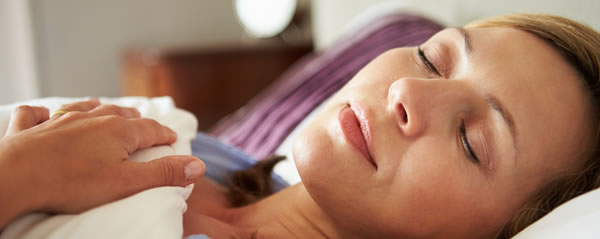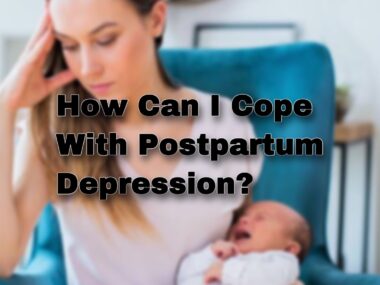Does menopause cause weird dreams?
Perimenopause women often ask themselves “Does menopause cause weird dreams?”. However, I must state that I have yet to be diagnosed as being perimenopausal. This is because of my night sweats, occasional hot flashes, inconsistent, painful, and heavy periods, increased anxiety, mood swings, and dark thoughts. I would say I am probably perimenopausal. As we enter this phase of our lives, do we have different types of dreams? Were our dreams more vivid, more real, or more memorable due to a shift in our hormones? My dreams have been unusual lately, so I’m gonna have to investigate a bit more and see what’s going on.
We dream for a variety of reasons, but first let’s take a look at them in general:
What is the purpose of dreaming?
During a single night, we cycle through four different phases of sleep between 4-6 times before waking up. In all four phases, we can dream, but REM (Rapid Eye Movement) is the phase when our brains are most active, making vivid dreams more likely. There are four phases in the sleep cycle, including the REM phase. This is the one you would wake up from if you woke up naturally, without an alarm. Dreams would be much more likely to be remembered if you were awake. You will be less likely to recall your dream if you wake from REM sleep and then go straight back to sleep.
Scientists have studied sleep and dreams for years, but the exact reasons why we daydream are still unclear. There are many theories about why we dream, and probably there are many reasons.
Here are just a few:
Storage of memories
When you think of the brain as a computer, our memories need to be backed up like files on a hard drive. Dreams are like interactive filing cabinets that store our memories.
Clearing the mind
Dreams may be a way for our brains to clear out some of the information they have stored. If you wish, you can consider this a process of decluttering.
Our processing
The number of images we process every day will blow your mind – on average, we deal with over 70,000 images per day! Hence, our dreams may simply be a way to process what we’ve seen or experienced during the day.
Also read; Perimenopause symptoms and management
![]()
You may feel like you do not dream, especially if you cannot remember them, but on average we all dream for roughly two hours per night. We come to the next question nicely after learning that women dream more vividly than men.
What are the effects of perimenopause on sleep?
Although women have gone through menopause since time began, it has only recently become more widely and openly discussed. I want to clarify one thing upfront. Menopause lasts only one day. Yes, that’s right, menopause begins one year after your last period. It is during perimenopause that women begin to notice their sleep patterns changing, often quite dramatically, and we’re talking several years before this point.
Perimenopausal women commonly experience night sweats, insomnia, sleep-disordered breathing, and vivid dreams. All of these factors affect how much sleep we get, the quality of sleep we get, and how we feel the following day. We may feel moody and unmotivated following a restless night’s sleep.
When we are desperate for energy, we tend to eat unhealthy foods and eat more than we normally would. Exhaustion makes us less likely to exercise. Combined with all the other symptoms of perimenopause, sleep deprivation can make us irritable, anxious, stressed, and downright depressed. This shows just how imperative sleep is for our mental health.

How can we determine the cause of this disruption to our sleep? Hormone changes. In particular, estradiol (a form of estrogen) drops during perimenopause and has been linked to poor sleep quality, especially if levels drop too fast. Osteogeny is a type of sexual hormone that affects not only a woman’s reproductive system but also her immune system, her skeletal system, and her cardiovascular system.
Body weight and body fat are impacted by low estrogen levels associated with aging, perimenopause, and menopause. Hot flashes may contribute to obesity and insulin resistance, for example, by causing poor-quality sleep. A rise in body temperature is another factor associated with perimenopause – hot flashes and night sweats, anyone?
Do Hormone Changes During Perimenopause Lead To Weird Dreams?
If we know that we dream more during REM sleep, and we know that women experience more vivid dreams than men, then it also suggests that women experience more REM sleep than men, but why?
On average, women get more sleep than men, but this sleep is fragmented. It could be due to a variety of factors. We may experience changes in body temperature, worry and anxiety that affect our minds, and hormone changes.
However, broken sleep means waking up at times in our sleep cycles that we would not naturally awaken at. As a result, we often wake up in the middle of a dream, when we are fully immersed in it. As a result, we are more likely to remember them and they appear more vivid to us.
It is also imperative not to overlook the impact that stress has on our sleep. Wait until those hormones become completely haywire if you thought you were anxious before perimenopause symptoms appeared.
We already have a lot on our plates at this time of our lives. We’re juggling challenges if you will. All those balls are tumbling down on us while we’re trying to keep them all up. Transitioning children, aging parents with health issues, work commitments, changing friendships, and social pressures. In addition to all the crap going on in the world, there’s also the relatively small matter of the world’s chaos. It’s no secret that there are a lot of things to worry about. Our brains have to deal with this worry somehow, so it feeds into our dreams, doesn’t it?
As estrogen levels fall and progesterone levels rise, sleep becomes shallow. As a result, you are more likely to wake up during a dream, making it feel more real. Nightmares and night terrors can often develop from our anxieties, which adds to the element of reality. Additionally, dramatic, scary, action-packed dreams can trigger night sweats by raising our heartbeats and adrenaline levels. As a result, if the dream itself didn’t wake you up, the sweat soaking your bed most certainly will.

What should you do if you experience weird dreams during menopause?
I would say no, in a nutshell. Perimenopause and certain points of your cycle are perfectly normal times when you experience more vivid dreams and nightmares. You should be concerned, however, if this is affecting your sleep, energy levels, mood, and overall well-being. It is a problem if it interferes with your daily life, so you should definitely seek assistance. There’s no guarantee it’ll be easy, unfortunately. It is still difficult to find help and to be heard about perimenopause, even though conversations about it have become more popular.
Therefore, when you schedule a visit with your GP about this (which you absolutely should), you need to have all the information you need. Log your symptoms using a menopause app like Balance or Flo, or write them down in a journal if you prefer.
Make sure you pay attention to how much sleep you get and how often you wake up at night. You should write down your dreams, regardless of whether you suffer from night sweats. Keep a journal the next day to reflect on how you feel. Information like this is invaluable for creating a picture of your life. Getting along with your doctor will be easier if you know what to expect.
Facebook also has a number of support groups for women navigating menopause and perimenopause. The reason for this is that they will make you realize that you are not alone. Speaking openly about your journey, reading about other women’s experiences, and seeking advice from others will empower you.
As a temporary solution, you can try the following to help you sleep better:
-
Reduce caffeine intake: Caffeine and sleep do not mix well, as we all know. So perhaps you should avoid coffee close to bedtime or cut down on one or two cups per day. It is also helpful to remember that tea, chocolate, and cola drinks contain caffeine as well!
-
Be mindful of when and what you eat: Consuming a heavy meal too close to bedtime will strain your digestive system and keep you awake half the night. It’s advisable to avoid eating after 7 pm or, if you must, consume light and don’t overconsume.
-
Avoid screens: It has been proven that blue light emitted from phones and computers lowers melatonin production in the body. Without adequate levels of this hormone, you may have difficulty sleeping because it regulates sleep in the body. Before winding down for the day, avoid using screens in the bedroom if possible.
-
Exercise regularly: There are so many benefits to regular exercise, one of which is improved sleep. You need to recover after exercise because exercise uses up your energy. Performing strenuous exercise too late in the day will raise your adrenaline levels and have the opposite effect as you might expect.
-
Stay calm: Being unable to fall asleep can be frustrating, but stay calm. There are literally no words to describe how frustrating it can be. Stop trying to fight it by checking the clock every five minutes, turning and tossing, huffing and puffing, and instead wake up. Even though it may seem counterintuitive, getting up is more likely to help you fall back asleep. Relaxation comes from doing something you enjoy. Take a break by reading for a while, heading down to the kitchen for a drink, or just sitting somewhere else.
-
Reduce the heat: Perimenopausal women are no strangers to feeling hot in bed, but not in a sexy way. It might be a wise idea to do the following if you wake up regularly sweaty. This is to check your central heating and possibly turn it down a notch or two. Also, switch your duvet down a notch or two, and open a window. Buy a fan. Change your sheets to breathable natural fabrics such as cotton or linen, and change your pajamas.

The only way to tell if a dream is funny is to look at it! The changing hormone levels in our bodies during perimenopause profoundly affect our dreams.
Our dreams are likely to reflect any stress we are experiencing, mental or physical. Despite what it may seem, more vivid dreams are actually beneficial to our health during perimenopause.






